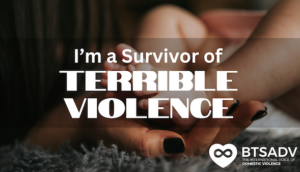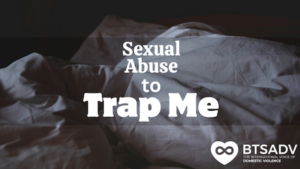By Iris Pendelton
Surviving the Holidays After Leaving an Abusive Relationship: A Guide to Healing and Self-Care
The holiday season can bring a whirlwind of emotions, especially if you’ve recently left an abusive relationship. What is often considered a joyous time of year can instead feel like a painful reminder of your past. The pressure to be festive, the memories of holidays spent in toxicity, and the emotional toll of healing can make this time particularly overwhelming.
However, the holidays can also offer a unique opportunity for growth, self-reflection, and reclaiming your sense of self. By embracing self-care, setting boundaries, and creating new traditions, you can begin to heal and experience the season on your terms. Here’s how to navigate the holidays with strength, compassion, and self-love.
1. Allow Yourself to Feel Your Emotions
Healing from an abusive relationship is not linear, and the holidays can trigger a range of emotions. From relief and sadness to anger, guilt, or even nostalgia, it’s important to give yourself permission to feel whatever comes up. There’s no “right” way to feel during this time, and you don’t need to force yourself into holiday cheer.
Take time to process your emotions in a healthy way. Journaling can be a powerful tool to help you reflect on your feelings, while talking to a trusted friend, family member, or therapist can provide valuable support.
2. Redefine Holiday Traditions
The holidays are often tied to long-held traditions, many of which may no longer feel meaningful after leaving an abusive relationship. This is the perfect time to redefine what the season means to you and create new traditions that reflect your growth and freedom.
Try something new this year—whether it’s preparing a dish you’ve always wanted to try, decorating your space in a way that brings you peace, or volunteering to support others in need. Find activities that bring joy, comfort, and a sense of empowerment.
3. Let Go of Items that Trigger Painful Memories
Certain mementos from your past relationship, such as gifts, decorations, or photographs, can evoke painful memories and hinder your healing process. It’s okay to let go of anything that no longer serves you. This isn’t about erasing the past, but about making space for new, positive experiences.
If you’re not ready to part with these items, consider putting them out of sight. As you grow stronger, you can revisit these items and decide whether it’s time to donate, sell, or dispose of them entirely. Removing these triggers can help create a more peaceful and healing environment for yourself.
4. Set Boundaries and Protect Your Peace
Holiday gatherings with family, friends, or colleagues can feel especially stressful if people don’t fully understand your situation. It’s essential to set boundaries that protect your emotional well-being. You are not obligated to attend every event, explain your journey to everyone, or participate in traditions that no longer align with your needs.
Prepare gentle but firm responses to any questions about your relationship or your healing. A simple “I’m focusing on my healing right now” can help shift the conversation. And remember, it’s okay to leave a gathering or conversation if it becomes overwhelming.
5. Avoid the Comparison Trap on Social Media
Social media can be overwhelming during the holidays, especially with the flood of curated “perfect” moments—happy couples, ideal family gatherings, and perfectly decorated homes. It’s easy to fall into the trap of comparison and feel like you’re missing out.
Remember that what you see on social media is often just a highlight reel. People tend to share the best parts of their lives, not the full picture. If scrolling through social media leaves you feeling worse, it’s okay to take a break or unfollow accounts that don’t inspire positivity. Your holiday experience is valid, regardless of what others may be posting online.
6. Lean on Your Support System
Surround yourself with people who understand and support you—whether it’s friends, family, or a therapist. The holidays can be isolating, particularly if you’ve lost connections due to your past relationship. Reach out to those who lift you up and help you feel less alone.
If in-person support isn’t available, consider joining an online support group for survivors of abuse. Connecting with others who understand your experiences can help you feel more grounded and connected.
7. Practice Self-Care
Self-care is crucial for anyone, but it becomes even more important when you’re healing from an abusive relationship. Use this season to focus on your own well-being. Self-care during the holidays may look like taking extra time to rest, saying no to obligations that drain your energy, or engaging in activities that bring you peace and joy.
Create a self-care plan for the holiday season—whether it’s taking daily walks, practicing mindfulness or meditation, journaling, or treating yourself to something small that makes you feel good. Prioritize activities that nourish your mind, body, and spirit.
8. Plan Ahead for Triggers
Certain songs, traditions, or events can trigger painful memories of your past relationship during the holidays. Being prepared for these triggers can help you navigate them with more control. Consider creating a “holiday survival kit” filled with comforting items like a favorite book, soothing music, or a calming candle.
It’s also okay to avoid specific traditions or events that bring up too much emotional pain. Honor your needs, and don’t feel guilty for taking a step back.
9. Be Kind to Yourself
The holidays are filled with expectations—both internal and external—about how we “should” feel or what we “should” be doing. But remember, leaving an abusive relationship is a courageous act, and you’ve already made incredible progress by choosing your safety and well-being.
Practice daily affirmations that remind you of your strength, resilience, and worthiness. Phrases like “I am healing at my own pace” or “I deserve peace and happiness” can help you stay grounded and focused on your personal growth.
10. Look Forward to the New Year
While the holidays can bring up complicated emotions, the new year represents a fresh start. Use this time to reflect on your journey and set intentions for your continued healing. Instead of focusing on external resolutions, consider setting personal or emotional goals that support your well-being.
Writing down what you’re ready to release from the past and what you want to bring into your future can help you start the new year with clarity and hope.
Final Thoughts
Surviving the holidays after leaving an abusive relationship is a challenging but incredibly brave process. By embracing your emotions, setting boundaries, redefining traditions, and practicing self-care, you can reclaim the holiday season and focus on healing.
Remember, the holidays don’t have to look a certain way. What matters most is that you give yourself the time and space you need to heal, reflect, and grow. You deserve peace, joy, and healing—not just during the holidays, but every day.
As you move forward into the new year, trust that brighter days are ahead. You are resilient, strong, and deserving of love—especially the love you are learning to give yourself.
Keywords: healing after abuse, surviving the holidays, self-care for abuse survivors, healing from domestic violence, holiday self-care tips, new holiday traditions, setting boundaries after abuse, overcoming emotional triggers, support for survivors, and self-love during the holidays.
Hashtags: #SurvivorSupport #HolidayHealing #DomesticViolenceAwareness #SelfCare #HealingJourney #NewYearNewBeginnings #EndTheCycle #BTSADV #DomesticViolenceSurvivors










